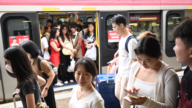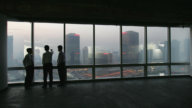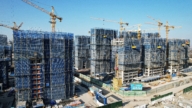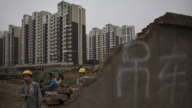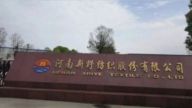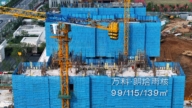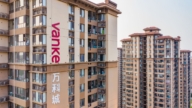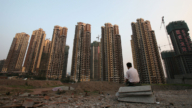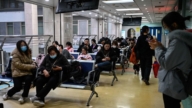【新唐人2013年09月16日讯】近期,中共总理李克强连续发表措辞强硬的讲话,9天内4次谈到经济改革,在外界普遍对中国经济将“硬着陆”而担忧的情况下,尤为引人关注。经济学者认为,中共当局持续的表态,正是目前中国经济危机深陷,到了不得不改的地步后产生的条件反射。那么,经济改革的最大阻力在哪里呢?分析指出,改革不涉及中共体制本身这个“利益集团”,将注定不能“治本”,阻力也越大。
李克强在9月11号,大连举行的夏季“达沃斯”世界经济论坛开幕仪式上强调,中国的改革大势不可逆转。
在此前一天,会见参加论坛的企业家时,李克强就表示,改革是触动利益的事情,需要用壮士断腕的决心推进,做到“言必行,行必果”。
9月9号,李克强在英国《金融时报》上撰文,承认目前中国经济增长面临的一系列发展困境和危机,以及必须深化社会、经济改革的迫切性。
而在9月3号的东盟博览会上,李克强又提出,必须着力释放改革红利。
短短9天之内,李克强已经连续4次就“经济改革”发声。
美国南卡罗莱纳大学艾肯商学院教授谢田认为,目前中南海不停表态要推进经济改革,正好说明目前中国的经济模式不可持续,到了不得不改的地步。
美国南卡罗莱纳大学艾肯商学院教授谢田:“这种经济现状非常危急,必须有所作为才能突破现在的困境。我们看到的不管是房地产的泡沫,通胀的问题,还有股市的问题,还有经济增长放缓,再加上社会民怨沸腾,所有的社会问题现在归集在一起实际上每个都在直接指向中共的政权本身。”
今年7月以来,李克强亲自主抓、拍桌子定下的上海自贸区计划遭到上海地方当局、银监会、证监会等各个方面的反对,历经波折后才得以落实。
《纽约时报》认为,“利益集团”的力量已经渗入到各个重要领域,来自他们的阻力和干涉会伴随中国改革的每一步。
大陆经济学家郑先生:“最大的麻烦或者阻力不是在外部或者市场怎么样,也不在于老百姓,是在于既得利益和那些旧有制度的受惠者、旧有观念的坚持者。主要阻力就来自于央企和地方政府。”
谢田则强调,利益集团恰恰就是中共体制的本身。
谢田:“实际上是中国的老百姓需要去动这个利益集团的奶酪,也恰恰就是中共这个利益集团把中国老百姓的奶酪和财富给抢走了。所以现在经济改革,财富分配也好,如果不能够触及到中共既得利益集团本身的话,那实际上注定是不可能成功的,这个阻力也会越来越大。”
《德国之声》去年曾指出,早在几年前,中国社会学家就通过长期调研发现,中国亿万富翁90%是中共高干子弟。报导披露,这些太子党们活跃于金融界、外贸和房地产等领域,积累了总共2万亿人民币的财富。
郑先生:“我们再也不能用维稳模式去持续性发展我们的经济。会有越来越多受害者他们明白过来,他们会站出来说‘你剥削垄断我们这么多年了,你还不知道自己最大的问题?’这是不以个人意志,或某个团队、某个党派的想法所左右的。”
时事评论员晴朗发表评论文章还指出,目前中国根本不存在经济自由化的政治环境。他认为,在政改完全搁置,意识形态全面倒退,宪政和公民社会都遭到否定的氛围下,李克强力推以经济自由化为目标的“上海自贸区”,最终将注定是一场乌托邦的试验。
谢田也认为,经济改革只能在解体中共体制这个“利益集团”的前提下,才能真正的达到“治本”的目的。
采访/常春 编辑/李明飞 后制/李智远
Li Keqiang Faces Obstacles in China’s Economic Reform
Premier Li Keqiang has pledged economic reform
on four occasions during the past nine days.
Among the concerns for China’s economic “hard
landing,” his talk signals China is facing a crisis.
Experts believe it reflects economic reform is necessary.
However, what are the obstacles to economic reform?
Analysis suggests that as long as the Communist regime
remains untouched, the obstacles will continue to exist.
Li Keqiang pledged to push ahead economic reforms on
September 11 at the World Economic Forum in Dalian.
Li Keqiang emphasized reform is a must,
and risk will be guarded during a meeting
of entrepreneurs a day before the forum.
On September 9, an article was published in the
Financial Times, where Li Keqiang admitted that
among economic difficulties, China is in need of a
complex process of economic and social change.
At a China-ASEAN Expo on September 3rd,
Li Keqiang proposed reforms must focus on
unleashing dividends from reform initiatives.
In 9 days, Li Keqiang spoke four
times about economic reforms.
Professor Xie Tian, of the University of South Carolina
Aiken believes Zhongnanhai urging economic reform
suggests China’s economic model must change.
Professor Xie Tian, University of South Carolina-Aiken:
“The economy is at a critical point and must be changed.
Everything is pointing at the Communist regime.
Everything from the real estate bubble, inflation,
stock markets, slow economy, to social chaos.”
Shanghai’s free-trade zone was pioneered by Li Keqiang.
Since July, it has met multiple oppositions, including
local authorities, China Banking Regulatory Commission,
and China Securities Regulatory Commission.
A media says that interest groups have penetrated deep
into the regime, and are the main resistance to these reforms.
Cheng, Chinese economist: “The main trouble or resistance
does not exist in the market or with the ordinary people.
Rather, it is the vested interest groups,
beneficiaries, and adherents of the system.
The main resistance actually comes from the
state-owned enterprises and local governments.”
Xie Tian stresses that the Chinese Communist regime
itself is the very interest group that is the problem.
Xie Tian: “In fact, it is the Chinese people
who need to be involved in the economy.
The Communist regime is the interest group
who robbed the economy from the people.
Be it economic reform or wealth
distribution, it is doomed to fail.
As long as the regime remains untouched,
resistance will only grow stronger.”
Deutsche Welle reported last year that offspring
of CCP cadres form 90% of Chinese billionaires.
These princelings occupy the financial sector, trade and
real estate, and have a total wealth of two trillion RMB.
Cheng: “The economy can no longer
develop under the maintaining stability model.
People will realize that they have been exploited for all
these years and the regime is the problem of the economy.
No individual or party will be able to fool them any longer.”
Commentator Qing Lang indicated in an article that
China’s political environment allows no free economy.
Political reform has idled, and the regime
lacks ideology, constitution, and civilization.
He believes Li Keqiang’s Shanghai Free
Trade Zone is simply a utopian test.
Xie Tian points out that economic reform will only
happen when the Communist regime has ended.


